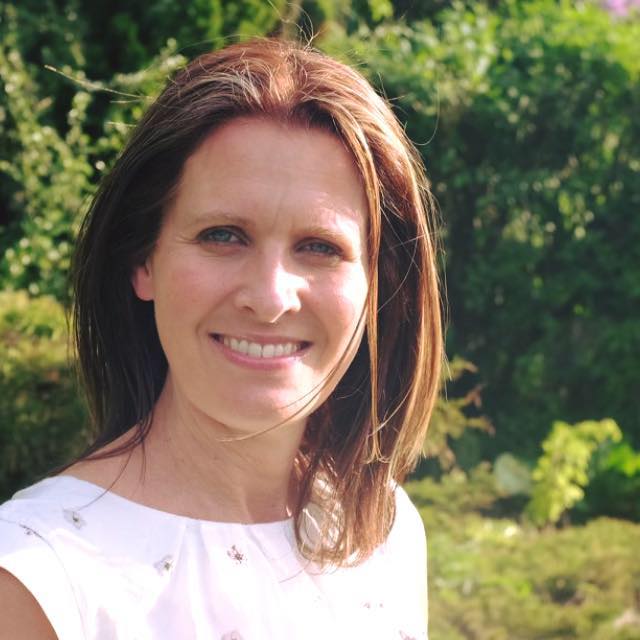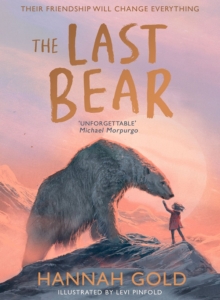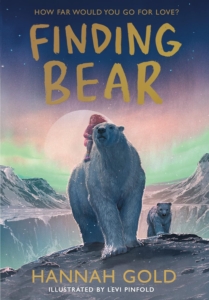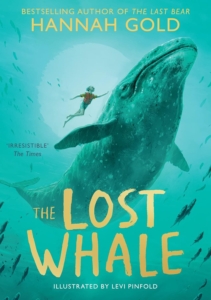
Animal Magic: An interview with Hannah Gold
Michelle Pauli interviews Hannah Gold for Books for Keeps.
Fans – and there are quite rightly many – of Hannah Gold’s acclaimed first novel The Last Bear are in for a treat. Two years ago the book introduced April Wood and Bear in the captivating tale of an 11-year-old girl befriending a polar bear when she spends six months living on the Arctic outpost of Bear Island with her scientist father. Now, in Finding Bear, we discover what happened next.
 Surprisingly, given how naturally the story continues, a sequel was never inevitable. Hannah had a follow-up, or even a trilogy, in mind from the start but her agent was cautious, suggesting instead that they offer the book to publishers as a standalone. But as The Last Bear swiftly notched up both sales and prizes, winning the Waterstones Children’s Book Prize 2022 and the Blue Peter Book Awards 2022, it didn’t take long for HarperCollins to warm to the idea of a sequel.
Surprisingly, given how naturally the story continues, a sequel was never inevitable. Hannah had a follow-up, or even a trilogy, in mind from the start but her agent was cautious, suggesting instead that they offer the book to publishers as a standalone. But as The Last Bear swiftly notched up both sales and prizes, winning the Waterstones Children’s Book Prize 2022 and the Blue Peter Book Awards 2022, it didn’t take long for HarperCollins to warm to the idea of a sequel.
And just as readers will delight at being back in April’s and Bear’s icy but heart-warming world, for Hannah the return was a sheer pleasure.
‘The story meant so much to me. It was such a personal, passion project. And, later, the question everyone always asked when I did events was, will April and Bear ever see each other again? So I felt there was an enthusiasm and I became really excited for people to pick up the new journey and see where it takes them and fall in love all over again.’
Their world is possibly even more evocative than in The Last Bear, with the action taking place in the frozen wilds of Svarlbard, where April said goodbye to Bear at the end of the first book. Seventeen months later she returns with her father, having heard that a polar bear has been shot and injured, and convinced that it is Bear. Once again Gold fills the pages with vivid descriptions of the bleak, beautiful and achingly cold Arctic lands – but this time informed by her own visit to the region. As well as the golden light and the stark icy plains, it is the wildlife that captured her imagination.
wilds of Svarlbard, where April said goodbye to Bear at the end of the first book. Seventeen months later she returns with her father, having heard that a polar bear has been shot and injured, and convinced that it is Bear. Once again Gold fills the pages with vivid descriptions of the bleak, beautiful and achingly cold Arctic lands – but this time informed by her own visit to the region. As well as the golden light and the stark icy plains, it is the wildlife that captured her imagination.
‘You’re standing on the bank of the fjord and you might see minke whales or teams of puffins flying over the water. When you’re there you don’t get this sense that the wildlife is disappearing when actually it is. We didn’t see a polar bear, but we saw arctic foxes. It just felt like there was this real purity to the landscape,’ she explains.
Finding Bear gets into the action more quickly than The Last Bear, with the expectation that readers will already understand the bond between April and Bear. This allows for a faster paced and more peril-filled narrative, especially when April finds herself stranded alone in a desperate survival situation as she searches for Bear. The book also introduces a wider cast of characters. There’s a welcome return for April’s young Norwegian friend Tor and the delightful addition of tough old lady Arctic guide, Hedda. But April’s emotional world is also filled out with the arrival of her father’s new girlfriend (who, awkwardly, also happens to be the headteacher of April’s school).
While the additional relationships make for a more rounded characters, at the heart of the story is still the bond between girl and bear, and now a bear cub, Peanut, too. Once again, Hannah is careful to keep a core of essential wildness in the bears, resisting the temptation to over-anthropomorphise wild animals, a task that is once again aided by Levi Pinfold’s illustrations.
‘The message I try to get across in this one is that the bears are having to come into our territory, which puts us in danger but also puts them in danger,’ she says. ‘The challenge is that Bear is less bear-like in this one because he is less wild, but we’ve already established that he is wild in the first book and the message is that only April has this magical bond with him. The other humans don’t have it and they’re afraid of him. And as cute as Peanut is, he’s not for our enjoyment. He belongs in that world. So you’ve got to create that separation.’
The other challenge is the huge one of writing about the very real and present effects of the climate emergency – here, how the melting of the ice caps is destroying animals’ habitats – in a way that’s appropriate for a middle-grade readership.
‘The trick is trying not to make it induce anxiety. I get climate change anxiety, so I always try to keep enough lightness and hope,’ she explains. ‘I was really aware that I didn’t want children to feel like they had to be responsible for saving the planet, because I think that’s too much pressure, and it takes away from the ownership of the adults. Whereas I want to make readers feel empowered to take action, or even just to open up their awareness that animals have feelings, too.’
It was this love of animals that prompted the story, bolstered by her admiration for Michael Morpurgo and his animal stories, rather than the imperative of climate change.
‘When I started researching polar bears, I realised I couldn’t write about them without talking about the ice caps. Finding Bear Island and the backstory to Bear Island was the starting point for the book. And it then necessitated the climate change strand to be in it. But it wasn’t deliberate.’
However, it was the key to realising a dream of being a children’s author that Hannah had had since childhood. Although she studied script writing at university and was close to having a couple of scripts made into films, she struggled with confidence after rejections, and moved to Costa Rica and Spain, teaching English and running writing retreats. Back in England many years later, further rejections of YA novels and a personal tragedy left her feeling defeated, until a friend suggested she return to her writing, almost as a form of therapy.
 ‘I went for it, and the story of Bear came to me through all that grief and pain. The emotional strands I’d been going through in my life all went into the book. And I wrote The Last Bear very quickly, it came out intact, and I knew it had got something. Within a year I had the publishing contract and it was a whirlwind – and it’s been a whirlwind ever since,’ she finishes, laughing.
‘I went for it, and the story of Bear came to me through all that grief and pain. The emotional strands I’d been going through in my life all went into the book. And I wrote The Last Bear very quickly, it came out intact, and I knew it had got something. Within a year I had the publishing contract and it was a whirlwind – and it’s been a whirlwind ever since,’ she finishes, laughing.
Yet, despite the pressure of producing three books in three years (The Lost Whale came between the two bear books), and the next one already drafted, alongside a hectic timetable of school visits and festival events, Hannah remains in quiet awe of the simple power of the story of a girl and a bear.
‘It’s when children come up at the festivals and they’re clutching their little polar bear, which they’ve got from the WWF, or they’ve raised the money as a class to get one,’ she says. ‘The first time it happened was when I realised, oh, look, it is making a difference. Even if that difference is in a small way, it is making a difference. That was always my driving force behind writing the book. Of course, I had my own dreams of being an author but I also wanted to achieve something in the world as well. I wanted it to be about something bigger than just me – the planet and the animals that we share it with.’
Michelle Pauli is a freelance writer and editor specialising in books and education. She created and edited the Guardian children’s books site.
The Last Bear by Hannah Gold, illus Levi Pinfold 978-0008411312, £7.99 pbk
Finding Bear by Hannah Gold, illus Levi Pinfold, 978-0008582012, £12.99 hbk
The Lost Whale by Hannah Gold, illus Levi Pinfold, 978-0008412968, £7.99 pbk




